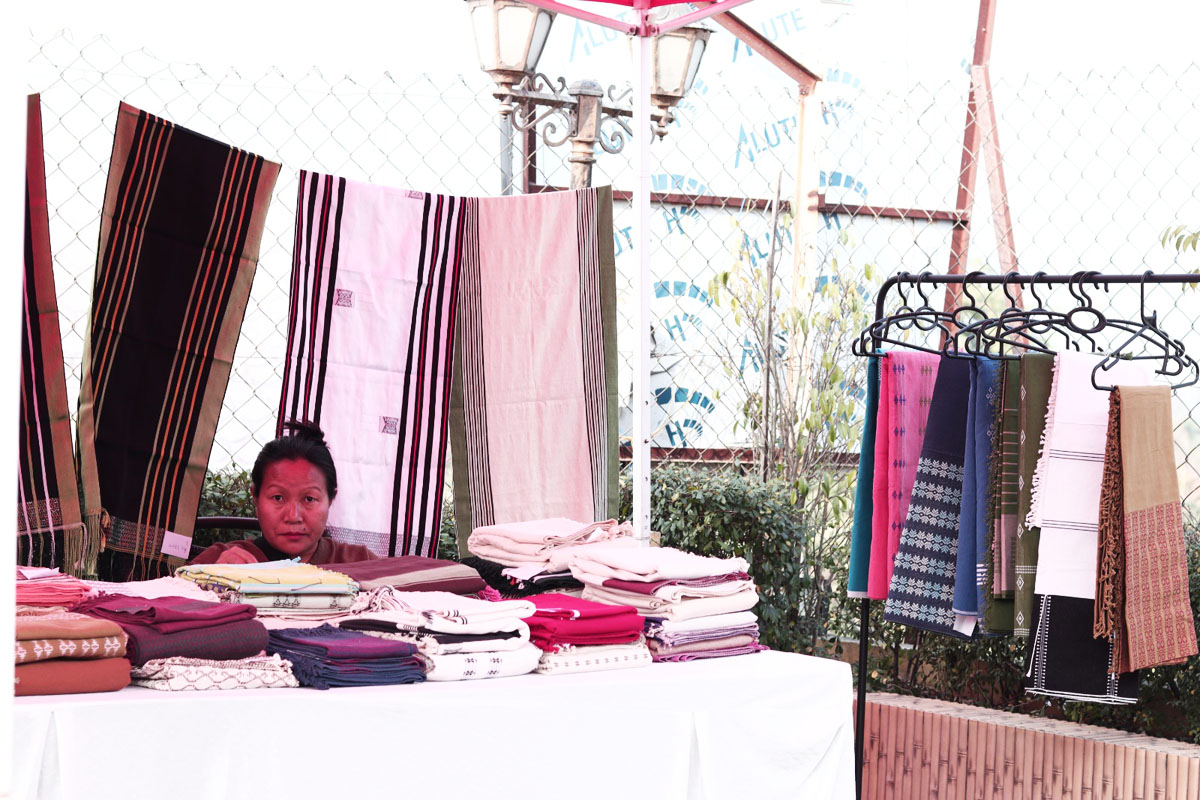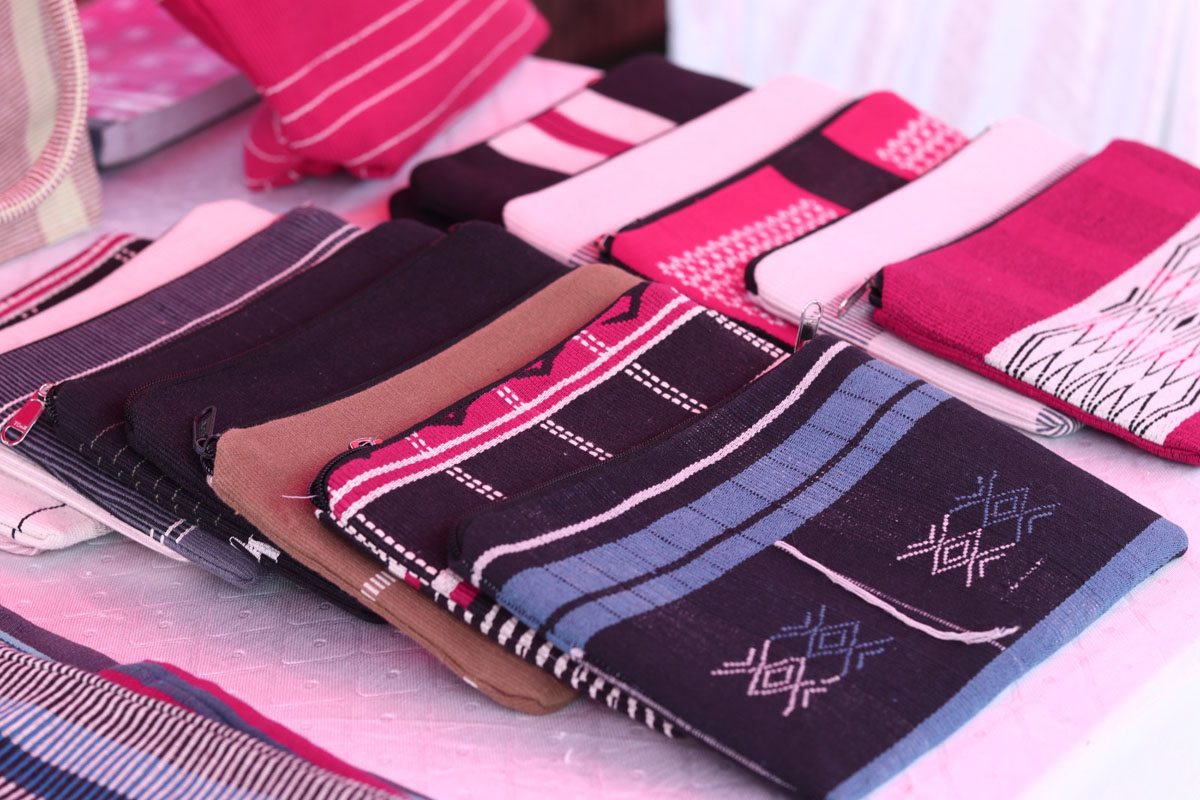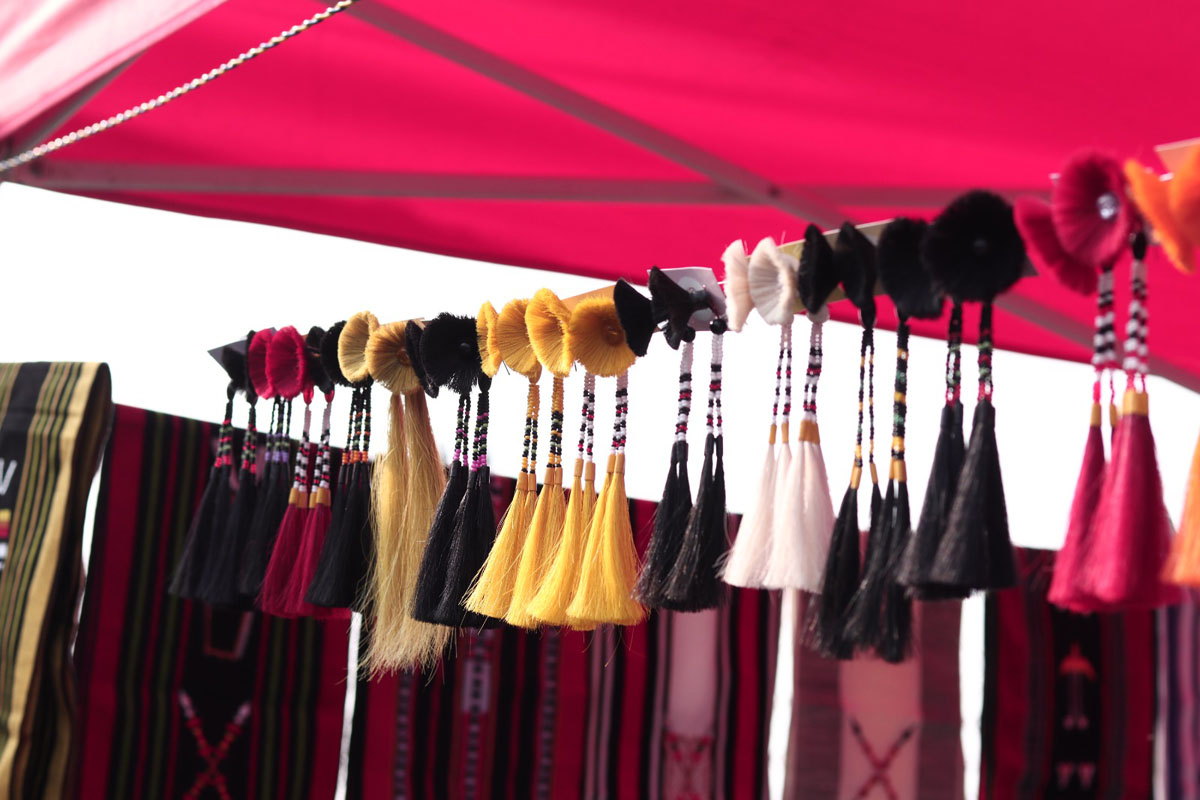SATURDAY, AUGUST 02, 2025
- Home
- Naga weavers embrace heritage to keep handloom culture alive
Naga weavers embrace heritage to keep handloom culture alive
Published on Jan 23, 2025
By EMN
Share
- Khupunai H

- Glimpse at the Tana Bana
District Handloom Expo
- DIMAPUR — At the heart of the Tana Bana District Handloom Expo, which commenced on Thursday, are artisans like Anitoli, founder of Anitoli Weaves, and Vekuvolu Dozo, founder of Viko Ethnic, who are working to preserve Nagaland’s handloom heritage.
- Anitoli, a member of the Sumi community from Niuland district, highlighted the importance of embracing handloom products in today’s fast-changing world.
- “Nowadays, most people are using western products and clothes. For me, it’s very important to use handloom products because they carry the traditions of our tribes and parents,” she shared.
- With 17 artisans working under her cluster, her mission is to not only preserve her community’s cultural legacy but also encourage others to support and adopt handloom products.
 Glimpse at the Tana Bana
District Handloom Expo
Glimpse at the Tana Bana
District Handloom Expo
Similarly, Vekuvolu Dozo, who specialises in traditional cotton handlooms, emphasised the importance of proper care to maintain the longevity of handmade fabrics.
- Read related story: Basking in Modi’s praise, Nagaland government and entrepreneurs strengthen tie
- Both artisans stress that handwoven products require special attention—Anitoli advises against machine washing, recommending gentle handwashing instead to preserve the fabric’s integrity, while Dozo noted that cotton products should be dried in shaded areas to prevent fading and maintain their quality over time.
- While participating in events like the Tana Bana District Handloom Expo provides valuable exposure, the artisans stated that they face significant hurdles and logistical difficulties.
- “Tana Bana is close to my location, so it’s manageable. However, travelling to distant places far from Dimapur is difficult because of the heavy luggage and transportation costs,” Dozo explained.
- Nonetheless, the benefits of handloom weaving remain a source of empowerment for Anitoli, who highlighted how weaving provides a sustainable livelihood, allowing her to balance work and family life.
- “For mothers like me, handloom weaving allows us to work from home while managing our families. We can sell our products online or directly from home,” she said.
- This flexibility not only creates a sustainable livelihood but also empowers women to contribute economically without leaving their households, she added.
- (The writer is a Master's student at North-Eastern Hill University, Shillong. She is currently an intern at Eastern Mirror)

